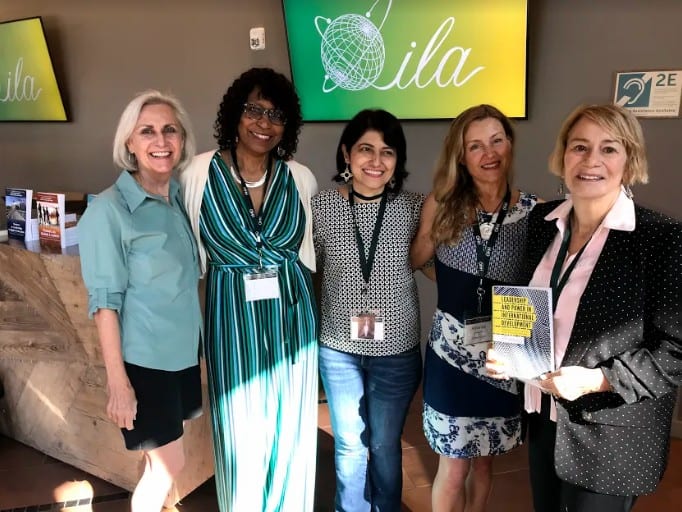
Challenges and Successes in Ending Violence Against Women in El Salvador
El Salvador has the highest rate of homicides of women in the world—along with the highest rate of homicides overall, according to the United Nations Office on Drugs and Crime—and USAID and other donors’ successful approaches to addressing gender violence in El Salvador provide valuable lessons for reducing this problem globally.
To raise awareness of the results of USAID research on the impact of women organizing, justice reform, and new masculinities on reducing gender violence in El Salvador, ME&A’s Chief of Party Dr. Randal Thompson of the USAID/El Salvador Monitoring, Evaluation, and Learning (ME&L El Salvador) initiative was a featured presenter and participant in the International Leadership Association (ILA) 4th ILA Women and Leadership Conference June 16 to 19, 2019, in Santa Cruz, Calif.
 More than 225 individuals from academia, government, and the private sector participated in this year’s conference. The conference’s theme was “Building Solutions, Harmony, and the Greater Good,” with USAID and other donors’ gender work in El Salvador a perfect fit.
More than 225 individuals from academia, government, and the private sector participated in this year’s conference. The conference’s theme was “Building Solutions, Harmony, and the Greater Good,” with USAID and other donors’ gender work in El Salvador a perfect fit.
Dr. Thompson presented a paper on “Cultural Change Leadership: Visioning a New Social Imaginary in El Salvador to Prevent Violence Against Women.” She addressed how in El Salvador women leaders of nongovernmental organizations (NGOs), women leaders in government, women community leaders, university students, and male leaders of new masculinities NGOs work together to change a highly paternalistic system steeped in a long history of machismo and violence (several massacres took place throughout El Salvador’s history as well as a 12 year-long civil war).
Dr. Thompson noted many women’s NGOs work to end violence, but in some locations women are afraid to access services because gangs monitor the services and threaten women who use them. She also addressed the relationship between machismo and gang violence, how programs in schools and communities can prevent youth from joining gangs and gang violence, and the measurable impact of several donor-funded projects in El Salvador working to strengthen the justice sector and reduce impunity.
Dr. Thompson’s recent award-winning book “Leadership and Power in International Development: Navigating the Intersections of Gender, Culture, Context and Sustainability” was also featured in a roundtable with Dr. Thompson.
Reflecting on the conference, Dr. Thompson said, “it was an extremely valuable learning and networking experience on women’s leadership and processes to build group collaboration and communication.”
For more information on Dr. Thompson’s presentation on gender violence in El Salvador, visit the Individual Submission Summary on her presentation on the ILA website. An Individual Submission Summary is also available on the roundtable discussion featuring her book.


